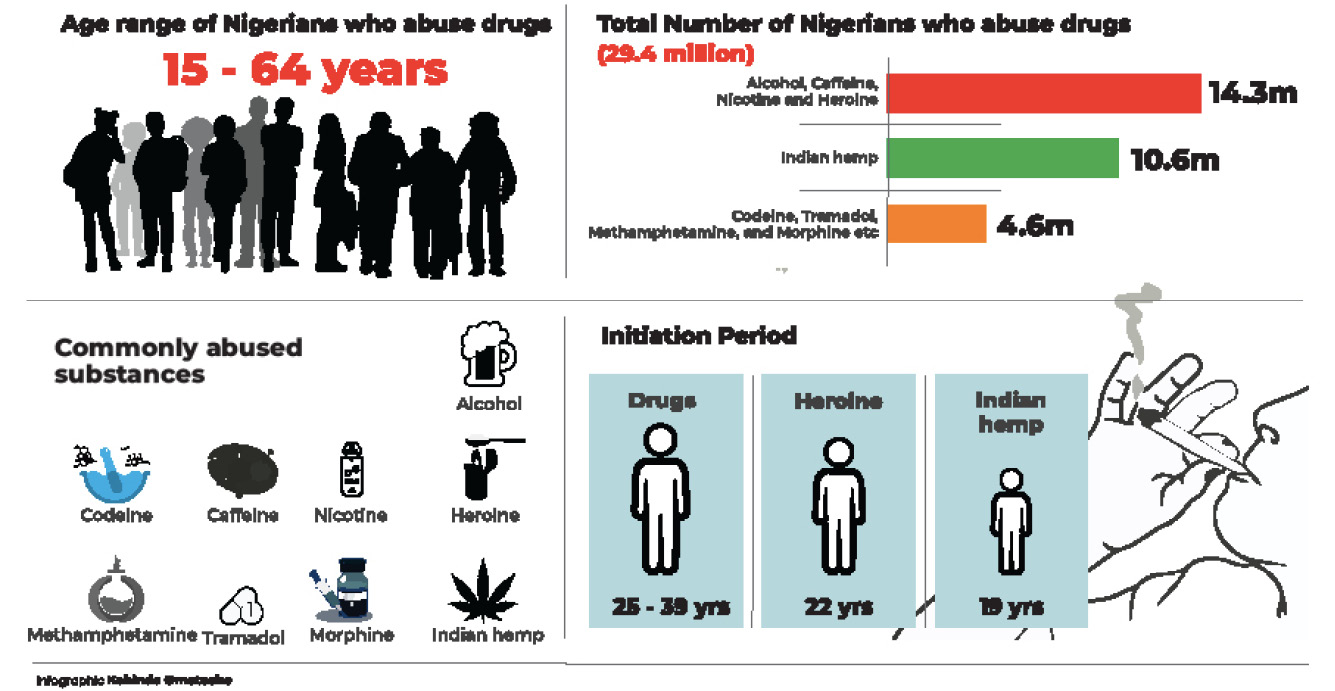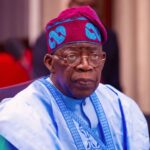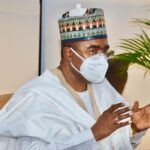A Facebook user, Emmanuel Onwubiko wrote a post quoting the National Drug Law Enforcement Agency (NDLEA) as saying that 29 million Nigerians smoke Indian hemp. The post has also been circulating on different social media platforms.
Verdict: MISLEADING
- We must seize power from political bandits in 2023 – YPP
- CBN advocates more banks’ participation in agric credit scheme
Full Text: The post by the Facebook user reads: “29 million Nigerians smoke ganja, says NDLEA,”
Verification: In verifying the claim, Daily Trust went through the websites and social media platforms of the National Drug Law Enforcement Agency but could not find any statement making such a claim.
Subsequently, Daily Trust traced the statement to the Anambra State Commandant of NDLEA, Mrs Florence Ezeonye.
However, Mrs Ezeonye stated that no fewer than 29.4 million Nigerians aged between 15 and 64 years abuse psychoactive substances, and not Indian hemp alone.
She stated this recently during a ceremony to mark this year’s United Nations International Day Against Drug Abuse and Illicit Trafficking in Awka, while also saying that one in every four drug users is a female.
What the Anambra NDLEA commandant said
Quoting from a health survey, Mrs Ezeonye said “The drug use and health survey of 2018 captured that 14.4% of the country’s drug use prevalence is almost three times the global average of 5.6%. “What is more disturbing is that drug abuse cuts across all ages, gender, socio-economic status and regions.
“This was why the National Drug Law Enforcement Agency (NDLEA) was established in 1989 and charged with the responsibility of enforcing laws against the cultivation, processing, sale, trafficking, use of narcotics and psychotropic substances and also investigating persons suspected to be dealing in drugs and drug-related in its effort at reducing the use, abuse and trafficking of illicit drugs.”
Daily Trust also found out from the survey that about 14.3 million Nigerians aged 15-64 years used psychoactive substances such as alcohol, caffeine, nicotine and heroin, while 10.6 million abused Cannabis. Also, 4.6 million others abused pharmaceutical opioids such as codeine, tramadol, methamphetamine and morphine among others.
Also, drug use was common among those aged 25-39 years; the age of initiation for heroin was 22 years, while the age of Cannabis sativa was 19 years.
Additionally, drug abuse was common among those aged 25-39 years; the age of initiation for heroin was 22 years, while the age of Cannabis sativa was 19 years.
What are psychoactive substances?
According to the World Health Organisation (WHO), psychoactive drugs are substances that when taken, or administered into one’s system, affect mental processes.
These mental processes include perception, consciousness, cognition or mood and emotions. This category of drugs also belongs to a broader category of psychoactive substances that also include alcohol and nicotine.
Further checks by Daily Trust also show that the production, distribution, sale or non-medical use of many psychoactive drugs is either controlled or prohibited outside legally sanctioned channels by law.
Also, psychoactive drugs have different degrees of restriction of availability, depending on their risks to health and therapeutic usefulness, and are classified according to a hierarchy of schedules at both national and international levels.
At the international level, there are international drug conventions concerned with the control of production and distribution of psychoactive drugs – the 1961 Single Convention on Narcotic Drugs, amended by a 1972 Protocol; the 1971 Convention on Psychotropic Substances; and the 1988 Convention Against Illicit Traffic in Narcotic Drugs and Psychotropic Substances.
Speaking to Daily Trust on the side effects, a medical practitioner, Dr Tinam Saidu, said “psychoactive substances could cause short-term physical effects that include higher blood pressure, rapid heartbeat, problems with sleeping and eating.”
She added that “long-term effects of abusing psychoactive could lead to terminal diseases such as cardiovascular illness, respiratory difficulties, kidney or liver damage which could manifest at the later, part of the individual’s life”
Background
There have been recent calls for Nigeria to legalise cannabis (popularly known as Indian hemp), however, regulatory authorities say the substance remains banned.
Some experts believe that there is a need to commercialise the production of hemp in the country for both medical and commercial purposes.
It is estimated that the global medical marijuana market alone will be worth $145 billion by 2025.
Some countries in Europe have already tapped into the huge market to generate reasonable Gross Domestic Products (GDPs).
Subsequently, Ondo State Governor Rotimi Akeredolu has disclosed plans by the state government to grow Indian hemp for medicinal and economic reasons.
According to him, the state will create a platform under the supervision of the NDLEA, to grow hemp which would create thousands of jobs for Nigerians if seriously considered by the federal government.
He said: “We all know that Ondo State is the hotbed of cannabis cultivation in Nigeria. We know how to grow it and it thrives well in the Sunshine State. With an estimated value of $145 billion in 2025, we would be shortchanging ourselves if we fail to tap into the legal marijuana market.
“Our focus now is medical marijuana cultivation in controlled plantations under the full supervision of the NDLEA. I strongly implore the federal government to take this seriously as it is a thriving industry that will create thousands of jobs for our youth and spur economic diversification.”
However, be it of medical or recreational variant, Indian hemp remains an illegal substance in Nigeria based on the Nigeria Drug Law Enforcement Agency (NDLEA) Act, a creation of the legislative powers of the National Assembly.
Conclusion: Verification by Daily Trust revealed that the NDLEA Anambra commandant said 29.4 million Nigerians abuse different psychoactive substances and not Indian hemp alone, as such the Facebook user’s claim is MISLEADING.
This fact check is produced in partnership with the Centre for Democracy and Development (CDD).

 Join Daily Trust WhatsApp Community For Quick Access To News and Happenings Around You.
Join Daily Trust WhatsApp Community For Quick Access To News and Happenings Around You.


